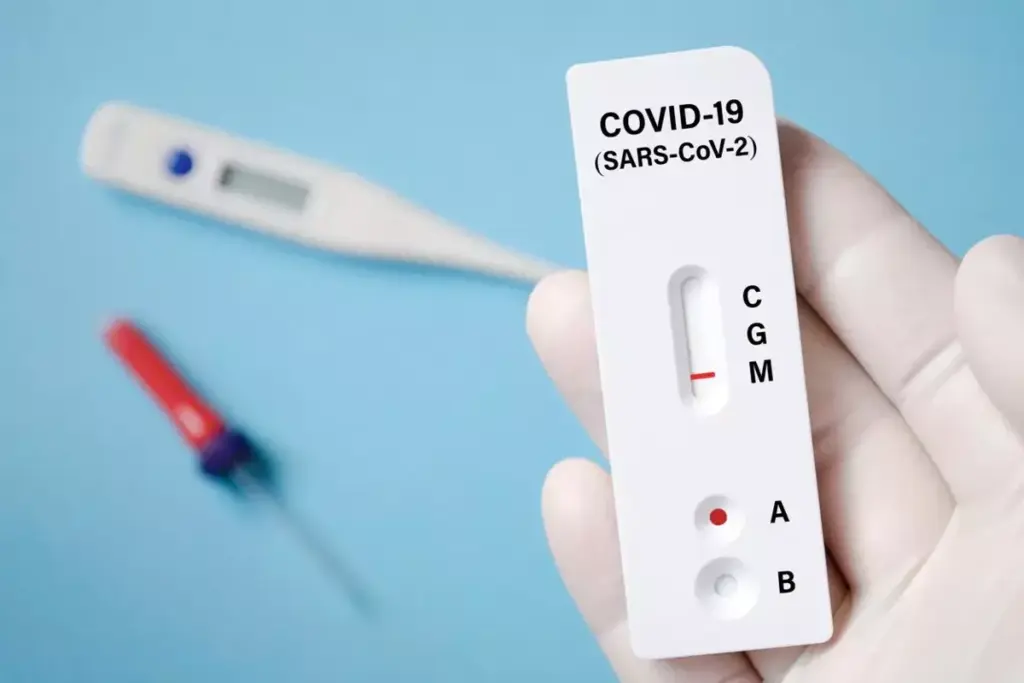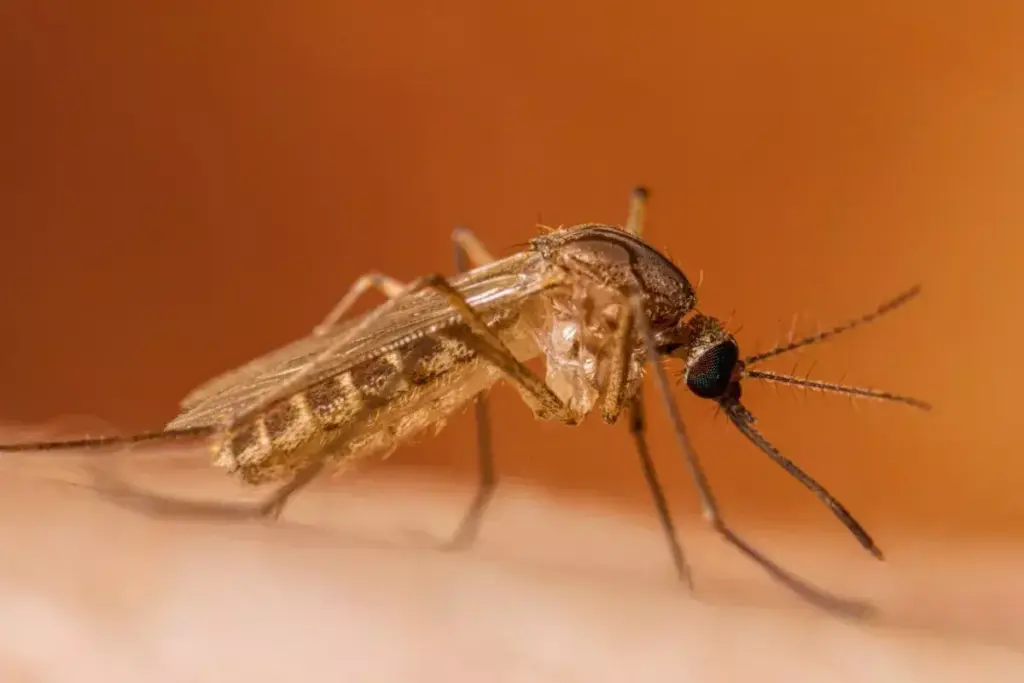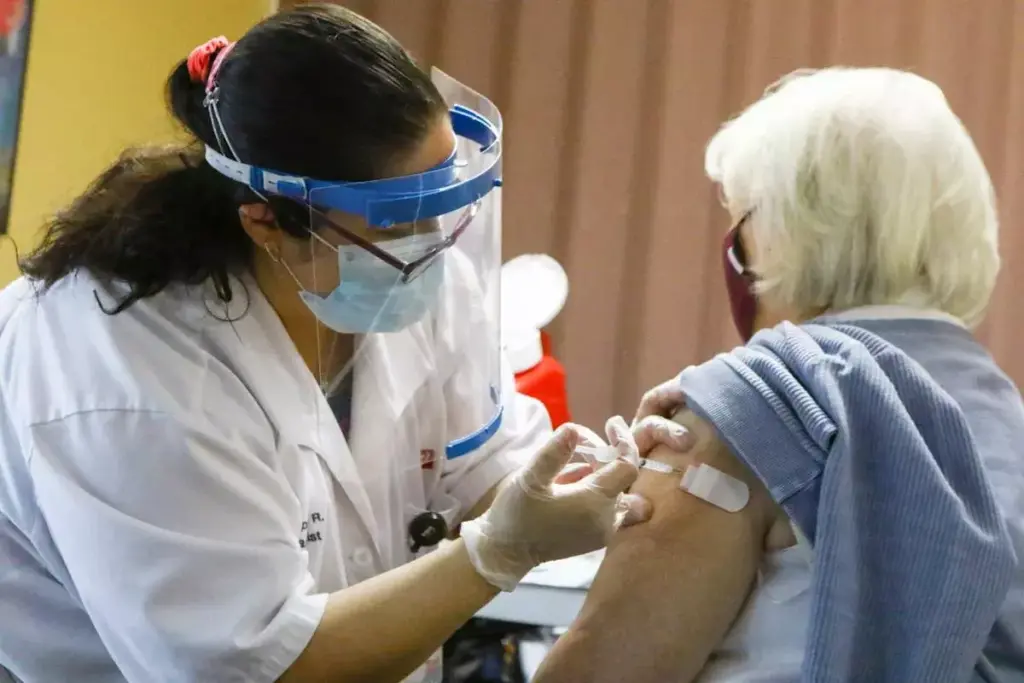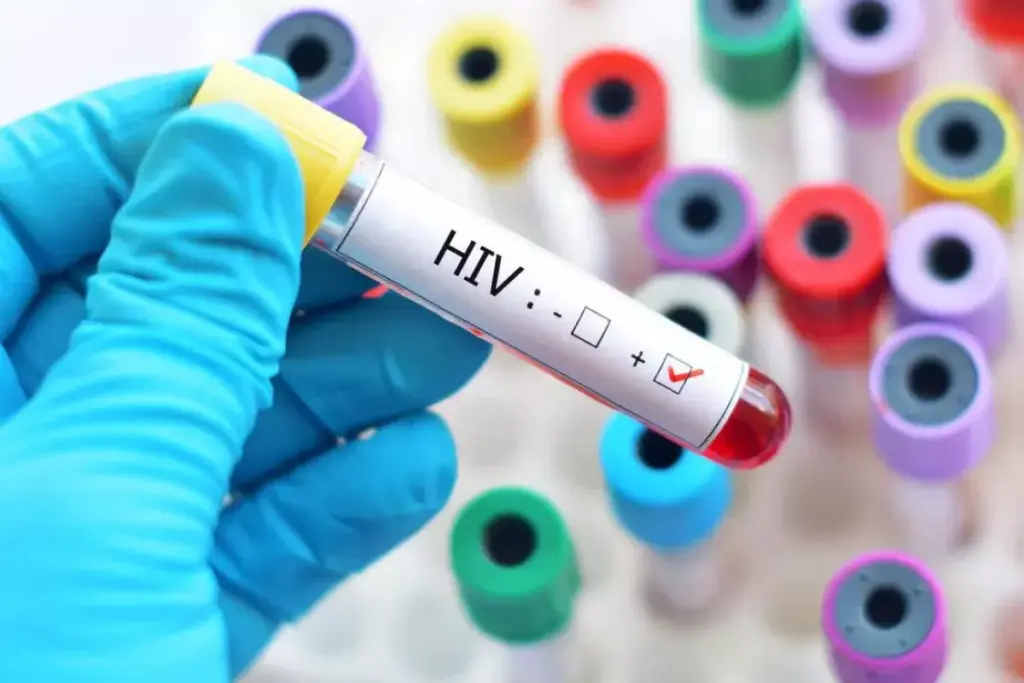
Do you often find a bad taste in your mouth and wonder if your sinuses are the culprit? Sinus drainage can definitely cause an unpleasant taste, making you seek answers.
At Liv Hospital, we get how annoying and uncomfortable this can be. Our team is here to help you figure out the problem and find a fix. Knowing about postnasal drip and its causes is key to solving the bad taste issue.
When too much mucus drips down your throat, it can make your mouth taste bad. We’ll look into why this happens and what you can do to feel fresh and clean again in your mouth.What does a healthy sinus CT scan look like? Get the essential guide to recognizing normal anatomy and identifying healthy tissue.
Key Takeaways
- Sinus drainage can cause a bad taste in the mouth due to postnasal drip.
- Excess mucus dripping down the throat can lead to an unpleasant taste.
- Understanding the causes of postnasal drip is essential in solving the problem.
- Liv Hospital’s team is committed to helping you find a solution to this issue.
- A thorough approach can help you feel fresh and clean in your mouth again.
The Sinus System and Its Normal Function

To understand how sinus drainage can cause a bad taste, we must first know how the sinus system works. The sinus system, or paranasal sinuses, is a group of cavities around the nasal cavity. They produce mucus to keep the nasal passages moist and trap dust, pollen, and germs.
Anatomy of the Sinus Cavities
The sinus cavities are lined with mucous membranes and divided into four main pairs: maxillary, frontal, ethmoid, and sphenoid sinuses. These cavities are air-filled spaces that connect with the nasal cavity through small openings.
How Healthy Sinuses Drain Naturally
In healthy people, the sinuses drain naturally through the nasal cavity. The mucous membranes produce mucus that cilia carry towards the nasal cavity. This process helps clear pathogens and debris from the sinuses.
The Connection Between Sinuses and Your Throat
The mucus from the sinuses drains down the back of the throat, a process called postnasal drip. Normally, we swallow this mucus without noticing. But when the sinuses get infected or inflamed, the mucus can become thicker and more noticeable. This can lead to a bad taste in the mouth.
Understanding how the sinus system works and its connection to the throat is key to addressing sinus bad taste and mucus issues. By knowing how healthy sinuses function, we can better understand what goes wrong with sinus problems.
What a Healthy Sinus CT Scan Looks Like
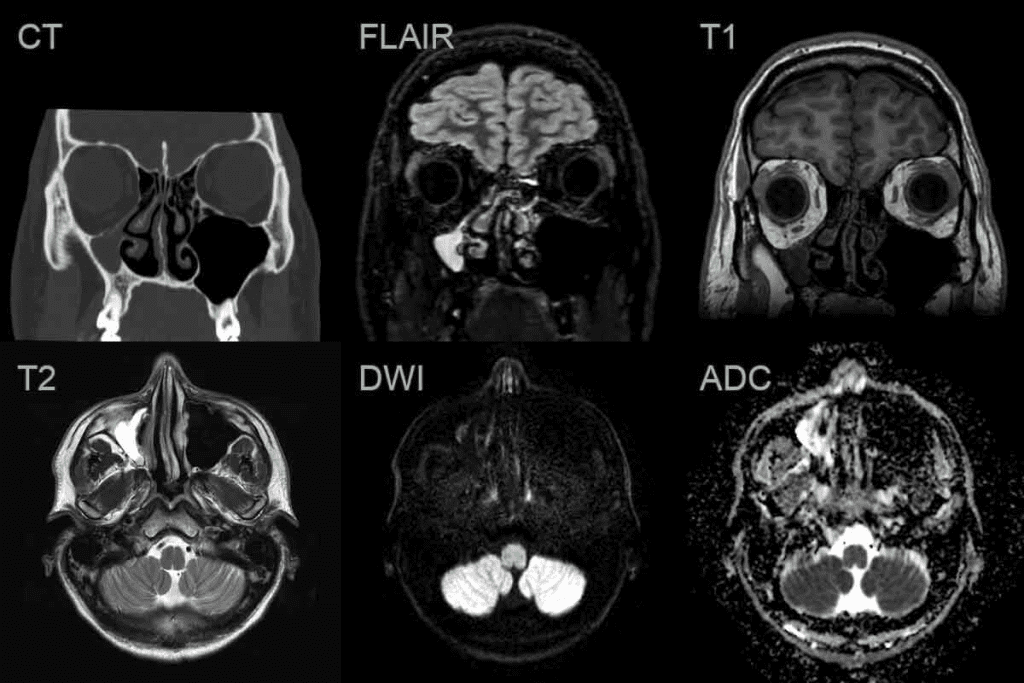
A healthy sinus CT scan shows clear, air-filled sinuses. There are no signs of thickened mucosa or structural problems. This clarity helps us see how healthy sinuses work and drain properly.
Normal Findings on Sinus Imaging
Normal sinus imaging shows air-filled cavities. These cavities have a thin mucosa that’s not thick or inflamed. The lack of mucosal thickening is a sign of healthy sinuses.
Key features of normal sinus imaging include:
- Air-filled sinus cavities
- Thin mucosal lining without thickening
- No anatomical variants that could obstruct drainage
- Normal drainage pathways
Air-Filled Cavities Without Mucosal Thickening
In a healthy sinus CT scan, the sinus cavities are well-aerated. They are free of fluid or soft tissue opacification. The mucosa is not thickened, showing no inflammation or infection. This is different from sinusitis, where mucosal thickening and fluid buildup are common.
“The normal sinus mucosa is thin and almost imperceptible on CT scans, reflecting the healthy state of the sinuses.”
Absence of Anatomical Variants That Compromise Drainage
Anatomical variants like nasal septal deviation or Haller cells can block sinus drainage. In a healthy sinus CT scan, these variants are either not present or don’t affect drainage. The absence of such variants ensures proper drainage, lowering the risk of sinusitis.
The importance of a healthy sinus CT scan lies in its ability to:
- Confirm the absence of sinusitis
- Identify normal anatomical structures
- Rule out anatomical variants that could cause drainage issues
The Relationship Between Sinuses and Taste Perception
Our sense of taste is closely linked to our sinuses. This connection is clear when we have sinus infections. Sinus problems can make it hard to taste food, making meals less enjoyable.
How Your Sense of Taste Functions
The sense of taste comes from taste buds on our tongue and in our mouth. These taste buds have special cells that detect five basic tastes: sweet, sour, salty, bitter, and umami. These tastes help us enjoy food and avoid harmful substances.
The Process of Taste Perception:
- Taste molecules bind to taste receptors on the surface of taste bud cells.
- This binding causes a signal to be sent to the brain, where it is interpreted as a specific taste.
- The combination of these tastes allows us to experience the complex flavors of various foods.
The Role of Smell in Taste Experience
Smell plays a big role in how we taste food. The olfactory system, our sense of smell, can detect many odor molecules. This adds to the richness of our food experiences.
The Connection Between Smell and Taste:
- When we eat, volatile compounds from food travel up the back of the throat into the nasal cavity.
- These compounds bind to olfactory receptors, making food taste better.
- The mix of taste and smell lets us fully enjoy the flavors of our food.
How Sinus Health Affects Both Senses
Sinus health affects our sense of smell and taste. When sinuses are infected or inflamed, we can smell and taste less well.
| Sinus Condition | Effect on Smell | Effect on Taste |
| Healthy Sinuses | Normal sense of smell | Normal sense of taste |
| Sinus Infection | Reduced sense of smell | Impaired sense of taste |
| Chronic Sinusitis | Potential long-term reduction in smell | Potential long-term impact on taste |
Understanding how sinuses affect our senses helps us see why good sinus health is important. It improves our quality of life.
The Science Behind Bad-Tasting Snot
Understanding bad-tasting snot involves looking at normal and infected mucus. Sinus drainage that tastes bad often signals a problem that needs fixing.
Normal vs. Infected Mucus Composition
Normal mucus is clear or white. It traps dust, bacteria, and other pathogens. Infected mucus, on the other hand, is thick, yellow, or green. This is because it has pus and bacteria.
The change in mucus is not just about color. It involves many biochemical and cellular changes. Infected mucus has more bacteria, white blood cells, and debris. This makes it taste bad.
How Bacteria Alter Mucus Taste
Bacteria change the taste of mucus. When sinuses get infected, bacteria break down mucus. They release compounds with bad smells and tastes.
Bacteria’s byproducts are very unpleasant. They make the taste of snot foul. These bacteria also cause nasal congestion and postnasal drip.
The Role of Anaerobic Bacteria in Foul Taste
Anaerobic bacteria thrive in low-oxygen places. They are good at making strong, bad smells. In sinus infections, they make the snot taste foul.
Anaerobic bacteria show how complex sinus infections are. They need treatments that fix the infection and its symptoms, like bad taste.
Common Types of Bad Tastes from Sinus Drainage
Sinus infections can cause a range of bad tastes in the mouth. This can really affect a person’s life quality.
We’ll look at the different bad tastes linked to sinus drainage. This includes metallic and foul tastes. Knowing these can help find and treat the cause.
Metallic Taste Sensations
Many with sinus infections complain of a metallic taste. It’s a lasting, unpleasant taste that feels like metal or copper.
The reason for this taste isn’t clear. But it might be due to certain bacteria or inflammation in the mucus. Treating the infection can help get rid of this taste.
Foul or Rotten Taste Experiences
Some people with sinus issues also get a foul or rotten taste. This can make eating less enjoyable.
Often, anaerobic bacteria in the sinuses cause this taste. These bacteria make compounds that smell bad. Effective treatment of the sinus infection is key to stopping this taste.
Persistent vs. Intermittent Taste Changes
How bad taste from sinus drainage can vary. Some people always have bad tastes, while others have them sometimes.
Knowing if the taste changes are always there or not can help find the cause. Keeping a symptom diary can help track these changes.
By understanding the different bad tastes from sinus drainage, doctors can create better treatment plans. This helps address these symptoms more effectively.
Sinusitis and Its Effect on Taste Perception
Sinusitis can greatly affect our sense of taste. Whether it’s acute or chronic, sinusitis changes how we taste food and drinks. This condition not only causes discomfort but also alters our ability to enjoy what we eat and drink.
Acute vs. Chronic Sinusitis Symptoms
Sinusitis comes in two main forms: acute and chronic. Acute sinusitis starts suddenly with symptoms like nasal congestion, facial pain, and thick nasal discharge. These symptoms can last up to four weeks. On the other hand, chronic sinusitis lasts more than 12 weeks with persistent symptoms. Both types can greatly affect our sense of taste.
- Acute sinusitis symptoms:
- Nasal congestion
- Facial pain
- Thick nasal discharge
- Chronic sinusitis symptoms:
- Prolonged nasal congestion
- Continuous postnasal drip
- Reduced sense of smell and taste
How Infections Cause Taste Alterations
Infections leading to sinusitis can change our taste through several ways. The inflammation and congestion can make it hard for taste buds to work properly. Also, bacteria or viruses can release compounds that change how we taste things.
The connection between smell and taste is key here; when sinusitis hurts our sense of smell, it can also mess with our taste. This is because smell plays a big part in how we experience flavor.
Can You Lose Your Sense of Taste Completely?
While sinusitis can really mess with our taste, losing our sense of taste completely is rare. But how much our taste is affected can vary. Things like how long we have had sinusitis, how bad it is, and our own taste perception play a role.
In some cases, people might taste things as metallic or foul, which can be really upsetting. Knowing that these symptoms are from sinusitis can help us find the right treatment.
- If you’re having trouble with your taste, see a doctor.
- Doctors might prescribe antibiotics, anti-inflammatory meds, or nasal corticosteroids.
- Simple home remedies like saline irrigation can also help.
When Sinus Infections Affect the Roof of Your Mouth
Sinus infections can sometimes affect the roof of your mouth in unexpected ways. This can cause a lot of discomfort. It’s important to understand why and how this happens.
Sinus infections, or sinusitis, can spread beyond the nasal passages. They can even reach the roof of the mouth. Knowing how the sinuses and mouth are connected helps us understand this spread.
Recognizing Palatal Involvement
When sinus infections affect the roof of the mouth, it can swell or become inflamed. This swelling might be painful and can make eating or speaking uncomfortable.
It’s important to notice any unusual changes in your mouth, like swelling, if you have a sinus infection. This can help in getting the right treatment sooner.
Why Swelling Occurs in This Area
The swelling on the roof of the mouth happens when the infection from the sinuses spreads. This can happen directly or through the bloodstream.
The sinuses are close to the mouth, making it easier for infections to spread. Knowing this helps us understand why sinus infections can cause swelling in the mouth.
Distinguishing from Other Oral Conditions
It’s important to tell the difference between swelling caused by sinus infections and other mouth problems. Conditions like oral thrush or canker sores can look similar.
A doctor’s check-up is needed to figure out the cause of swelling. They might do tests to confirm it’s from a sinus infection and not something else.
Diagnosing the Source of Sinus-Related Bad Taste
Figuring out why you have a bad taste in your mouth due to sinuses takes a detailed approach. This includes medical checks and tests. It’s key to know what’s causing the bad taste and how to find out.
When to Consult a Healthcare Provider
If you always have a bad taste in your mouth and other symptoms like blocked nose, face pain, or fever, see a doctor. They can check your health and figure out what to do next.
Diagnostic Tests and Procedures
To find out why you have a bad taste in your sinuses, doctors use different tests. These include:
- Nasal endoscopy to look inside your nasal passages and sinuses
- Imaging studies, like CT or MRI scans, to see your sinuses and find problems
- Cultures or swabs to find out if you have an infection
- Allergy tests to see if allergies are causing your sinus problems
| Diagnostic Test | Purpose |
| Nasal Endoscopy | Visual examination of nasal passages and sinuses |
| CT or MRI Scans | Assessment of sinus anatomy and detection of abnormalities |
| Cultures or Swabs | Identification of bacterial or fungal infections |
Ruling Out Other Causes of Bad Taste
It’s also important to check if other things could be causing your bad taste. This includes gum disease, some medicines, or other health issues. A full medical history and physical check can help find these.
By using medical checks and tests, doctors can find out why you have a bad taste in your sinuses. Then, they can make a plan to help you feel better.
Medical Treatments for Sinus-Related Taste Disturbances
Sinus-related taste disturbances can be quite distressing. But there are various medical treatments that can help. When sinus drainage causes a bad taste, it’s often a sign of an underlying issue that needs to be addressed.
Antibiotics for Bacterial Infections
If the bad taste is due to a bacterial infection, antibiotics may be prescribed. It’s essential to complete the full course of antibiotics as directed. This ensures the infection is fully treated.
Anti-Inflammatory Medications
Anti-inflammatory medications can help reduce swelling in the nasal passages and sinuses. This can improve drainage and alleviate bad taste. These medications can be very helpful for individuals with chronic sinusitis.
Nasal Corticosteroids
Nasal corticosteroids are another effective treatment. They reduce inflammation and promote drainage. They come in various forms, including sprays and inhalers.
When Surgery Might Be Necessary
In some cases, surgery may be necessary. This is to address anatomical issues or remove blockages. Procedures to correct a deviated septum or remove nasal polyps may be needed.
Here’s a summary of the medical treatments available for sinus-related taste disturbances:
| Treatment | Purpose | Benefits |
| Antibiotics | Treat bacterial infections | Clear infection, reduce bad taste |
| Anti-Inflammatory Medications | Reduce swelling and inflammation | Improve drainage, alleviate bad taste |
| Nasal Corticosteroids | Reduce inflammation and promote drainage | Effective for chronic sinusitis, improve symptoms |
| Surgery | Address anatomical issues or blockages | Correct underlying problems, improve sinus health |
By understanding the available medical treatments, individuals can work with their healthcare providers. This helps find the most effective solution for their sinus-related taste disturbances.
Effective Home Remedies and Self-Care Strategies
We can tackle bad taste from sinus drainage with home remedies and self-care. Keeping our sinuses healthy is key to feeling better. Simple steps in our daily lives can make a big difference.
Saline Irrigation Techniques
Saline irrigation is great for getting rid of mucus and debris. It helps clear out bad taste by rinsing our nasal passages. We can use a neti pot or a squeeze bottle with a nasal spray tip.
Mix the saline solution as directed or use a pre-mixed packet. This method helps restore normal sinus function and reduces bacteria and pathogens.
Steam Inhalation Benefits
Steam inhalation is also helpful for sinus issues. It loosens mucus, reduces congestion, and opens our nasal passages. We can do this by taking a hot shower, using a steam humidifier, or inhaling steam from a bowl of hot water.
Adding eucalyptus oil or menthol to the water can make it even more effective. These ingredients help decongest and ease sinus problems.
Hydration and Dietary Adjustments
Drinking plenty of water is vital for healthy sinuses. It thins out mucus and prevents bacterial growth. Foods like ginger, turmeric, and omega-3-rich foods also help reduce inflammation.
Environmental Modifications
Changing our environment can also help. Using a HEPA air purifier removes allergens and irritants. Keeping our home clean, avoiding strong smells, and staying away from smoke also helps.
By trying these home remedies and self-care tips, we can manage sinus-related bad taste. Making a few simple changes to our daily routine can greatly improve our sinus health.
Conclusion: Managing Sinus Health for Better Taste
Keeping your sinuses healthy is key to avoiding bad tastes from sinus infections. Knowing what causes these tastes and using the right treatments can help. This way, you can feel better and live a happier life.
A healthy sinus CT scan shows good sinus health. Sinusitis can make your mouth taste bad. In serious cases, you might worry about losing your taste. But with the right treatment, you can get rid of these symptoms and feel normal again.
By taking care of your sinuses, you can keep your sense of taste and stay healthy. It’s important to see a doctor if your symptoms don’t go away. This helps find and treat any other problems that might be causing the bad taste.
FAQ
Why does sinus drainage cause a bad taste in my mouth?
Sinus drainage can make your mouth taste bad. This happens when extra mucus drips down your throat. It can carry bacteria and other stuff that changes how you taste things.
What does a healthy sinus CT scan look like?
A healthy sinus CT scan shows air-filled spaces without thick mucus. It also doesn’t show any issues that could block drainage. This means your sinuses are clear.
How do sinuses affect my sense of taste?
Sinuses are important for your sense of taste. They help with your sense of smell, which is linked to taste. When your sinuses get infected, it can mess with both your taste and smell.
What causes bad-tasting snot?
Bad-tasting snot usually comes from an infection. This infection changes the mucus’s taste. Bacteria, like anaerobic ones, play a big part in this.
Can a sinus infection cause a metallic taste in my mouth?
Yes, sinus infections can make your mouth taste metallic. This is because of the bacteria and the body’s fight against the infection.
How does sinusitis affect my taste perception?
Sinusitis can mess with your taste. It causes inflammation and infection. This affects your sense of smell and taste.
Can I lose my sense of taste completely due to a sinus infection?
Losing your sense of taste completely is rare. But a bad sinus infection can really reduce it. This is more likely with severe or long-lasting infections.
How can I diagnose the source of sinus-related bad taste?
To find out why your mouth tastes bad, see a doctor. They might do a sinus CT scan. This helps figure out what’s causing the problem.
What are the medical treatments available for sinus-related taste disturbances?
Doctors can treat bad taste from sinus problems. They might use antibiotics, anti-inflammatory meds, or nasal sprays. Sometimes, surgery is needed for chronic issues.
Are there any home remedies that can help manage sinus-related bad taste?
Yes, there are home remedies. Try saline rinses, steam inhalation, and staying hydrated. Changing your diet and making your environment better can also help.
Can sinus infections affect the roof of my mouth?
Yes, sinus infections can cause swelling on the roof of your mouth. This is called palatal involvement. It’s different from other mouth problems and needs a proper diagnosis.
How can I prevent bad taste associated with sinus infections?
To avoid bad taste from sinus infections, take care of your sinuses. Use medical treatments, try home remedies, and practice good self-care. This helps keep your sinuses healthy.
Is a bad taste in the mouth a common symptom of sinusitis?
Yes, bad taste is a common sign of sinusitis. It comes from the infection and the mucus that drips down your throat.
Can I experience a foul taste in my mouth from sinus drainage?
Yes, foul taste is a common bad taste from sinus drainage. It often happens because of anaerobic bacteria in the infected mucus.
References:
- U.S. Food and Drug Administration. (2017). What Are the Radiation Risks from CT? https://www.fda.gov/radiation-emitting-products/medical-x-ray-imaging/what-are-radiation-risks-ct
- Singh, V. (2023). CT Patient Safety And Care. StatPearls (NCBI Bookshelf). https://www.ncbi.nlm.nih.gov/books/NBK567800/





